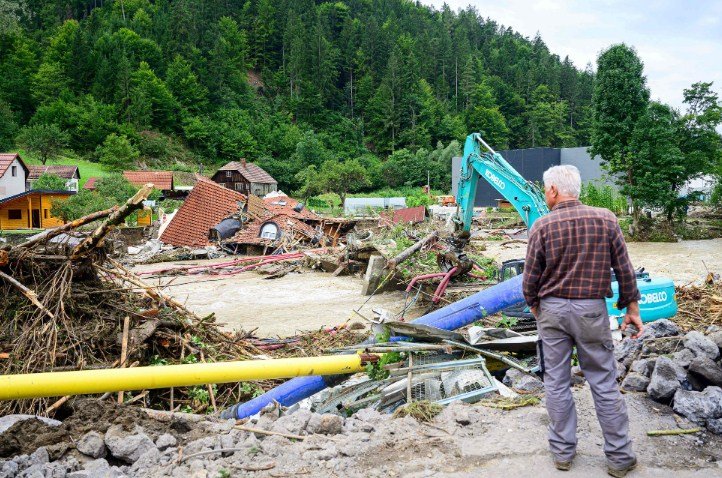Bank tax to last for five years
Slovenia has announced a plan to introduce a temporary tax on bank profits to help fund the reconstruction efforts after the country was hit by the worst floods in its history last month. The tax will amount to 0.2% of the banks’ total assets and will be in effect for five years, according to the Finance Ministry.
The ministry said that the banking sector had experienced a surge in profitability in 2022 and the first half of 2023, thanks to rising lending rates, low deposit rates, and low net impairments and provisions. Therefore, the government decided that the banks should make a significant contribution to the recovery of the country, which suffered damages of about €7 billion ($7.5 billion) from the floods.
The tax will be part of a legislative package that will include other measures to mitigate the consequences of the natural disaster, which killed six people and caused massive damage to homes and businesses in August. The European Union has already pledged around €2 billion for the flood relief, while the Slovenian parliament has approved a budget revision that allocates €520 million more.
Banks oppose new tax burden
The Slovenian Bank Association (ZBS) has expressed its opposition to the new tax, saying that it will have negative effects on the banking sector and the economy as a whole. The association said that the tax will reduce the banks’ capital adequacy, limit their lending capacity, increase their costs, and lower their competitiveness.
The ZBS also argued that the tax is unfair and discriminatory, as it targets only one sector of the economy, while other profitable sectors are exempt. The association said that the banks have already voluntarily offered additional support to their clients affected by the floods, such as loan deferrals, interest rate reductions, and donations.
The ZBS urged the government to reconsider its decision and to find alternative sources of funding for the flood reconstruction, such as issuing bonds or using EU funds. The association said that it is ready to cooperate with the authorities and to participate in a constructive dialogue on how to best help the country recover from the disaster.
Floods were most severe natural disaster since 1991
The floods that hit Slovenia in August were the most severe natural disaster to affect the country since it gained independence in 1991. The floods were caused by heavy rainfall that triggered landslides and mudslides, blocking roads and bridges, damaging power lines and water supply systems, and flooding thousands of hectares of agricultural land.
The worst affected areas were in the north and west of the country, where some towns and villages were completely cut off from the outside world. The government declared a state of emergency and mobilized the army and civil protection units to assist in rescue and relief operations. The EU also activated its Civil Protection Mechanism and sent experts and equipment to Slovenia.
The government estimated that the total cost of repairing the damage caused by the floods would amount to about €7 billion, which is equivalent to about 15% of the country’s gross domestic product (GDP). The government said that it would need at least five years to complete the reconstruction works and restore normal living conditions for the affected population.

